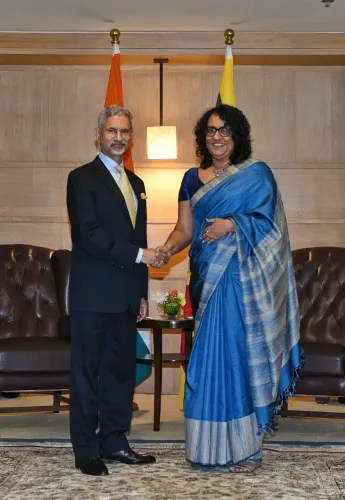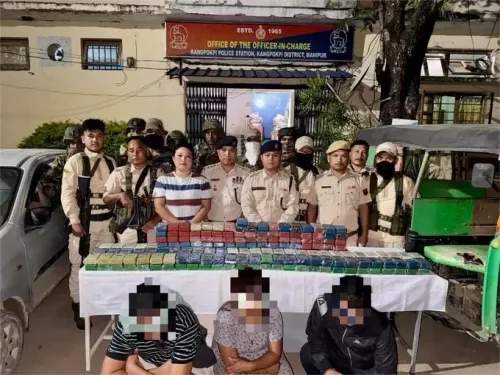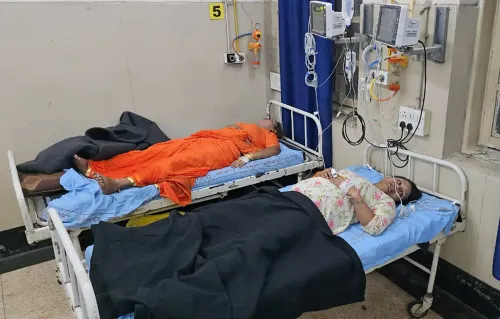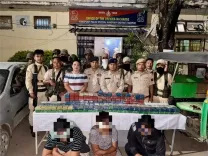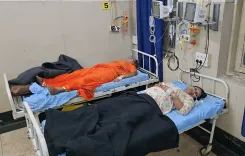Why Did Infosys Founder Narayana Murthy and Sudha Murty Opt Out of Karnataka's Caste Census?
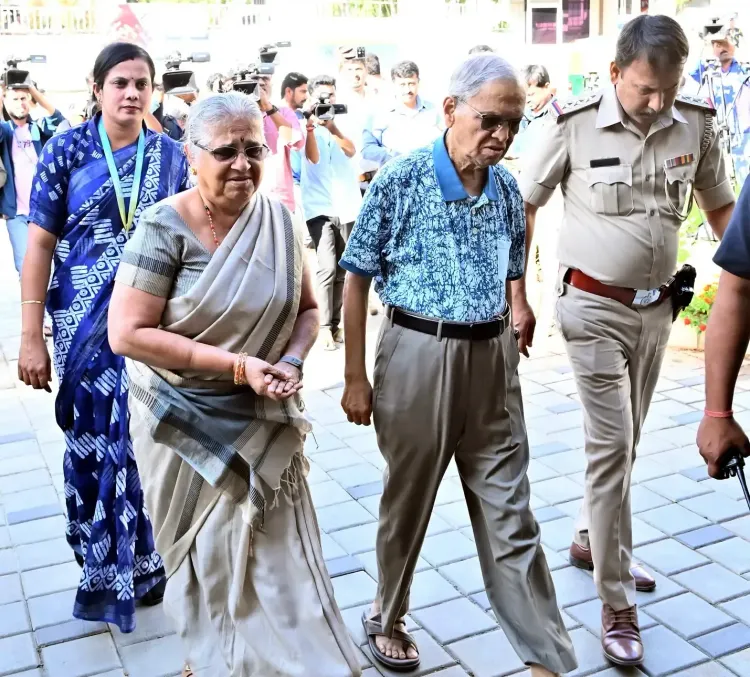
Synopsis
Key Takeaways
- Narayana Murthy and Sudha Murty opted out of the caste census.
- The couple cited personal reasons for their decision.
- The caste census aims to address social disparities in Karnataka.
- Concerns about data privacy and misuse have been raised.
- The survey deadline has been extended due to incomplete data collection.
Bengaluru, Oct 16 (NationPress) Infosys founder Narayana Murthy and his wife, renowned author Sudha Murty, have chosen not to engage in the ongoing contentious Socio-Economic and Academic Survey, widely referred to as the caste census, initiated by the Congress-led administration in Karnataka.
The couple submitted a self-attested communication to the Karnataka State Backward Classes Commission, the independent body responsible for conducting the survey.
In their official survey documentation, Narayana Murthy and Sudha Murty indicated that they were declining to furnish details for personal reasons. “We and our family will not take part in the census, and we are confirming it through this letter,” read the formal letter.
They further elaborated that they do not belong to any backward caste and that their involvement in the survey would not be beneficial to the government. “Thus, we are opting out,” stated Narayana Murthy in the correspondence.
Recently, enumerators carried out a survey at the residence of Deputy Chief Minister and State Congress President D.K. Shivakumar in Sadashivanagar, Bengaluru. Shivakumar, along with his family, participated in the process. They were asked questions regarding religion, caste, and other crucial details, to which Shivakumar responded with patience.
However, despite providing all necessary information, enumerators persisted in their inquiries, even posing counter-questions. Frustrated by the extended questioning, Shivakumar reportedly remarked, “Why are you taking so much time just to ask questions? Too much questioning.”
Meanwhile, senior advocate B.V. Acharya recently expressed that abstaining from the caste census might be wiser, warning of potential misuse of personal data if one chooses to participate.
The deadline for Karnataka's caste census has been extended, with the survey now expected to conclude statewide by October 12 and in Bengaluru by October 24, following the initial October 7 deadline being missed due to incomplete data collection.
To ensure the survey's completion, schools have adjusted to a half-day schedule, with government and aided institutions operating from 8 a.m. to 1 p.m. until the new deadlines, while some Dasara holidays have also been extended.
This decision was made as the survey was not finalized by the original October 7 deadline.
As of early October 2025, the ongoing caste survey in Karnataka has reached approximately 83 percent of households, having enumerated 1.22 crore households out of a total of 1.43 crore in the state.

